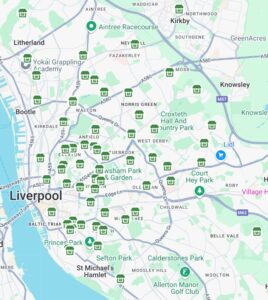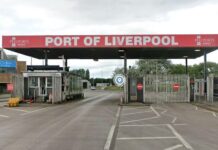With controversial changes benefit payments set to take effect from tomorrow, Merseyside’s charities and food banks are bracing for a surge in demand.
Speaking to Mersey News Live ahead of the May 1 changes to Universal Credit and Personal Independence Payment (PIP), staff said they feared they won’t have the resources to keep up.
One in four children across Liverpool lives in food-insecure households. Frontline groups warned these latest cuts could push thousands of struggling families into crisis.
Catherine Kearney, spokesperson for Micah Liverpool, a local charity, said: “The cost-of-living crisis has made things more challenging.”
“It’s a constant challenge; we mainly depend on individual donations and it’s gotten worse over the past few years.”
According to a report commissioned by Liverpool City Region in 2022, in Liverpool, food banks are facing unprecedented times with donations failing to meet demand from communities.
The amount of people seeking support from their food bank service increased by 96% in February 2022 compared to the same time last year, with 40% more food bank vouchers being fulfilled.
The strain is not limited to food assistance, without sufficient funding or volunteers, many non-profits fear they will have to cut back on services just as more people need them.
More recent research by the University of Liverpool in 2024 concluded: “The work undertaken by our students in food support spaces across Liverpool has highlighted that, for many, paid work does not ‘pay’ and people in low paid and insecure jobs are being pushed into deeper levels of poverty. There needs to be real systemic policy change to ensure that people aren’t going hungry.”
Catherine Kearney added: “Food poverty has been a problem for a long time and demands for foodbanks has increased but it’s not sustainable and now food parcels have to be rationed.”
“Foodbanks are meant to provide during emergencies not regularly like it’s shopping.”
“We need to make sure people have enough money in the first place for some dignity… it feels like social service now.”
Paul Khan, board member of (football) Fans Supporting Foodbanks (FSF) said: “We’re really just putting a sticking plaster on it, we’re trying our best to feed people.”
“We believe everybody should have access to food, we want it built into law that nobody goes hungry, we want free school dinner for every child, everybody should have at least one hot meal a day.”
Another report commissioned by FSF concluded that four of the six boroughs which constitute the Liverpool City Region are in the top 20% of most deprived local authorities in England.
Food insecurity, predictably, also brings more health-related issues.
Speaking to Feeding Liverpool, Melisa Campbell, associate director of public health – children and young people & health improvement said: “Families experiencing food insecurity often have several compounding factors making maintaining good health and wellbeing a lot more difficult. This is why the whole system needs to work together to tackle the complex and interrelated issues driving food insecurity faced on a daily basis by many of our families.”
Additionally, the work being done by these non-profit organisation has also wider implications. Journalist Ash Sarkar, in regards to FSF, wrote in The Guardian:
“This endeavour shows that football doesn’t have to be the domain of racists and Islamophobes, and that mosques aren’t some culturally alien and terrifying enclave. By addressing the immediate economic conditions of the neighbourhoods around them, anti-racist activists can bring together seemingly opposed communities and close down the gaps where the far right are able to organise.”

Copyright: Feedingliverpool.org










